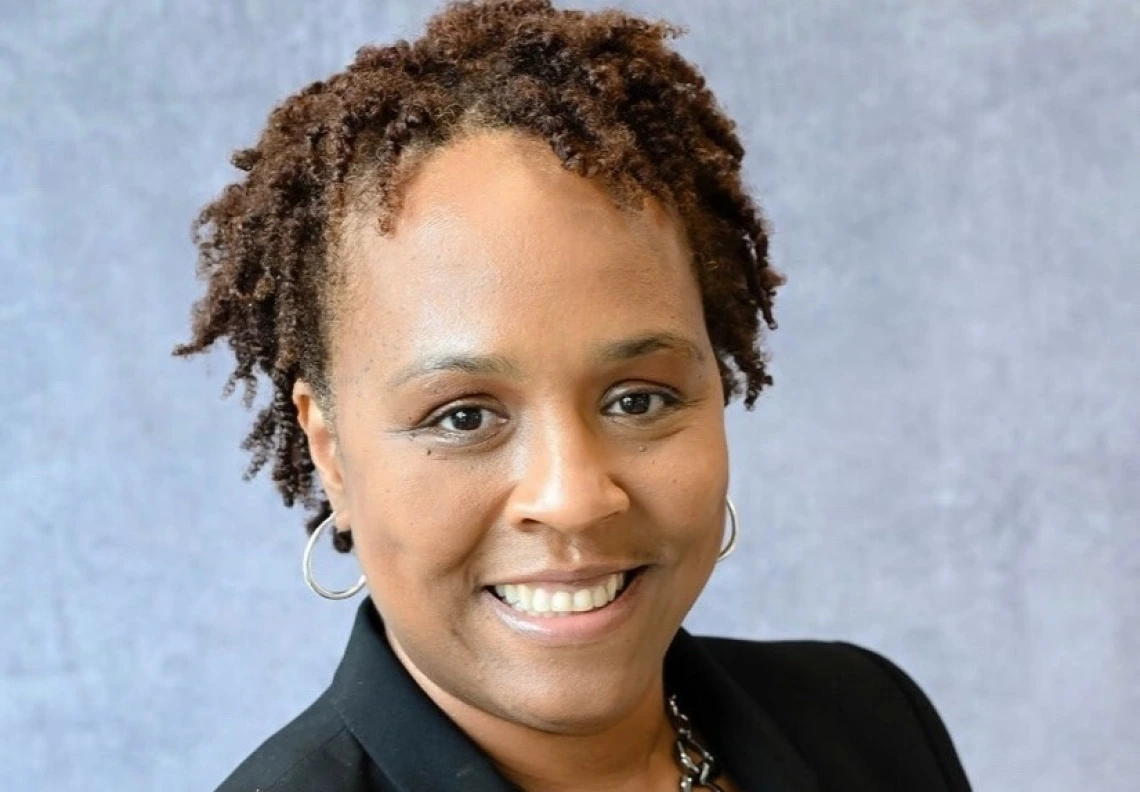UArizona Nursing Alumna Advances Health Equity as Cone Health’s Executive Director of Primary Care and the MedCenter for Women in Greensboro, NC

Walidah Karim-Rhoades, DNP, CNM, began her college career at the University of Arizona as an engineering major, but she quickly discovered that ensuring that healthcare was accessible and equitable for all was her true calling. After realizing that building structures and machines wasn’t for her, she dipped into her first nursing courses and never looked back. “I fell in love,” she says, the enthusiasm about her profession still evident in her voice. “I loved child development and all the human-related courses.”
That passion has led Dr. Karim-Rhoades on a nursing journey that has focused on putting women and family first and making a difference in the overall community. Currently, she is Executive Director of Cone Health’s Primary Care & Women’s Health in North Carolina, where she oversees 29 primary care practices and 11 OBGYN practices in three counties. Her women’s health work consistently addresses disparities in health care, such as maternal and infant mortality.
“My first rotation was labor and delivery at University Medical Center, which made me realize how much I loved women’s health, loved everything about birth. I still remember standing outside the door. At that time, students could just look through the window...and I thought, ‘This is what I want to do,’" ~ Walidah Karim-Rhoades, DNP, CNM
Born and raised in Phoenix, Dr. Karim-Rhoades had strong nurse role models in the form of her grandmother and sister, making nursing a natural choice. As an undergraduate in UArizona Nursing’s Bachelor of Science in Nursing (BSN) and Family Nurse Practitioner (FNP) programs, she appreciated her instructors and the robust support she got from the College. Her community health courses got her to thinking globally about the importance of health care. “Those classes really led me to all the work that I’m doing now,” she says. “My community health nursing rotation showed me how nursing can influence community health and population health.”
But it was her passion for maternal/infant care that drove her further in her academic career. “My first rotation was labor and delivery at University Medical Center (UMC), which made me realize how much I loved women’s health, loved everything about birth,” she says. “I still remember standing outside the door. At that time, students could just look through the window. I remember seeing that birth and crying, and I thought, ‘This is what I want to do.’ I fell in love with everything birth-related.”
While working at UMC as a labor nurse, Dr. Karim-Rhoades noticed that the babies that were dying were predominantly Black. Concerned about the numbers she saw, she discovered that the statistics for Black births were severely lacking. That formative experience led directly to her desire to learn everything she could about infant mortality disparities across the nation.
After receiving her graduate degree, she worked as director of an infant mortality program in her native South Phoenix, and eventually earned her Certified Nurse Midwife credentials, before moving east to North Carolina. There she also became involved with an infant mortality reduction program, currently serving as board president. “My work is framed by looking at community health and social determinants of health,” she explains. “Looking at how we provide that within the system of care that we provide now, so it’s more holistic versus external to the practice.”
As Executive Director of Cone Health’s Primary Care & Women’s Health, Dr. Karim-Rhodes led a team that created a two-story MedCenter for Women. The Center is a sort of one-stop health facility for women, including high-risk obstetrics and a variety of different medical services, as well as a food market to help patients with food needs. “Providers or staff members are able to put a referral in, and the person can get groceries and learn about healthy food choices,” she says. “All of that is in this one comprehensive space, which is like a dream.”
Above all, Dr. Karim-Rhoades treasures her ability to innovate the ways we provide care. “I have the ability to take what I’ve done in women’s health and ask, ‘How do we apply this lens to primary care?’” she says. “So now it’s pulling on that Family Nurse Practitioner experience and asking questions about how we address social determinants of health, and how we recreate health care to better support families. That’s what I love: The ability to be creative about how we deliver health care.”
Asked if she has any advice for nursing student seeking to follow in her footsteps, Dr. Karim-Rhoades encourages them to believe anything is possible. “Nursing is really a gateway for you to be able to affect change in a lot of different ways,” she says. “It’s not one set way for nursing, which I think is beautiful. I truly believe that my nursing degree is what helped me be a better leader, because I’m viewing things in a different, more holistic way.

